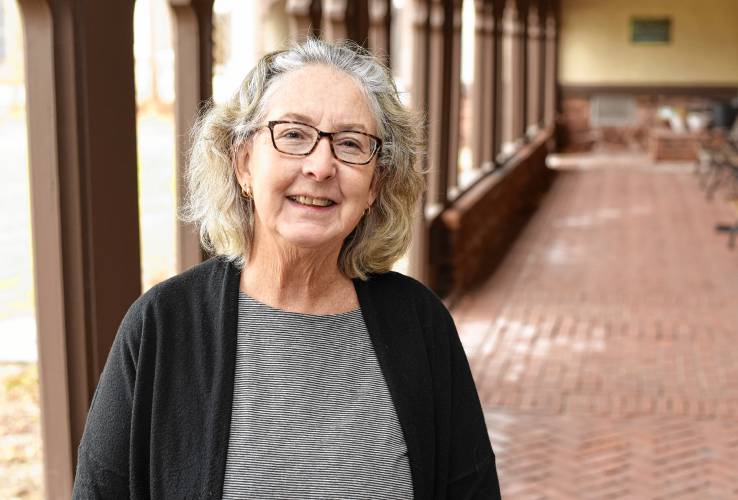This is the nativity story we cherish, because it promises that God is with us, and that the often-harrowing realities of the world are not the final word. We cherish the story and come together to sing the beloved songs that re-tell and celebrate it.
But (tonight/this morning) we have heard another nativity narrative, from the community of the evangelist John. John’s beautiful and mysterious “hymn to the Word of God made flesh” has no stable, no Mary and Joseph, no angels or shepherds or star. Matthew and Luke have a story to tell, but John is all metaphor. Presiding Bishop Michael Curry has said in reference to the other gospel writer who has no explicit birth story, Mark, that “he isn’t interested in baby pictures,” and we can say the same of John: he is not so much concerned with what happened in Jesus’ birth as he is with what it means. In the hymn we have just heard that begins John’s gospel, John makes two theological claims. One was more important to the community of Jesus’ followers as the first century of the Common Era turned to the second than it probably is to us. John’s second claim speaks profoundly to us about ourselves. The first concern John’s hymn addresses has to do with the nature of Jesus as the Christ, the presence of God embodied in the world in human flesh. Those of you who heard the teaching sermon on the Nicene Creed in November will recall that the young Church, in its first centuries, struggled mightily to figure out and understand the idea that Jesus was both human and divine. John begins his gospel addressing this very question: In the beginning was the Word, and the Word was with God, and the Word was God… And the Word became flesh and lived among us… full of grace and truth. The God who came into the world in Jesus, in other words, was not something new, but was THE WORD itself – the very essence of God – the mind, the will, the nature and passion of God that had been present and active from creation itself. Before the birth of Jesus this presence of God was not known to humans, but in the incarnation, the eternal, dynamic reality of LOVE ITSELF became known. John’s second claim is about the impact that the incarnation, the EMBODIMENT of God’s presence, has for us. God’s incarnation in Jesus the Christ has the purpose of changing human possibility: John says: “..to all who received him, who believed in his name, he gave power to become children of God.” John goes on to say that those who receive and know and understand Jesus as the power of God itself can be born “not of blood or of the will of the flesh or of the will of humans, but of God.” In other words, because we have seen what the invisible and unknowable God looks like in a human life, because we have known the life of Jesus the Christ, we are no longer just the product of the events in OUR lives, no longer tied to the difficulties and limitations of our humanity, but are children of God as Jesus was the child of God. The early “church fathers” – folks such as Irenaeus, Clement of Alexandria, and Athanasius, as well as later theologians such as Augustine and Aquinas – taught the concept of “divinization”, a process by which human beings are so transformed by grace that we come to share in God’s very nature.1 If we take this seriously, means that the Incarnation of God in Jesus is not just a one-time historical event, though it is that, but it is an event that opens up an ongoing reality in which we continue to participate, in which it is our opportunity to take up OUR part in the life of God. In John’s nativity, there is only still silence as the Word of God, the eternal, takes on temporal flesh for one fleeting human lifetime. It is, for us, a reminder that Love came into the world to make our fragile, temporary flesh holy. It is a reminder that our fleeting time here on earth is holy, too. We can be, like Mary “bearers of the eternal Word”. It is a radical and mysterious claim, but it is an invitation to life without fear, life lived in abundance. In Christmas, we celebrate tidings of great joy: love has broken through again. Christ is born in us again. Love is made flesh again. Whenever we find love, whenever we offer love, the holy is born in us again. What if we were to really live as if God is not something “out there”, but rather, as if our own being is filled with the infinite, creative, mysterious presence we call God? What if our own deepest self is in God and God is in us? We take part in the divine nature when we allow God’s love to affect us, to change us, to flow in and through us. We can work at more and more consistently living each moment in a way that reflects how much of the sacred we carry within us. In this Christmas season may we continue to explore the Incarnation of the Christ, both in a stable in Bethlehem and in our own lives, here, today; may we savor the gift that we receive in the birth of Christ. Each day may Christ be born a little more in our thoughts, our hearts, and in our choices, that the light enkindled in us may shine ever more fully in our lives.
Comments are closed.
|
We are blessed to have a diversity of preaching voices in our parish. Our guild of preachers is a mixture of lay and clergy. We hope you enjoy the varied voices. Meet our Preachers
All
Archives
July 2024
|
